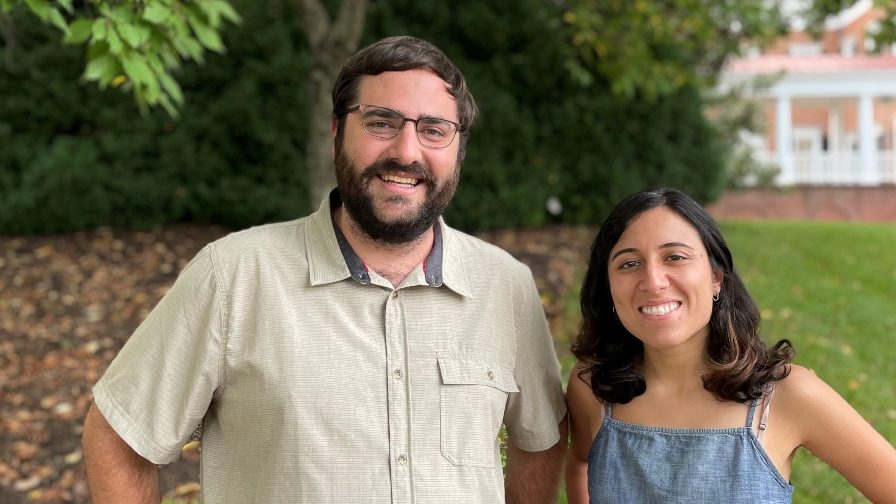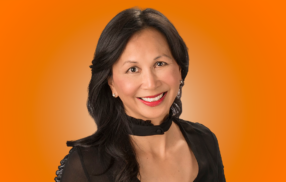
New Student Group Seeks to Support First-Generation Grad Students
By Dave Hendrick
Graduate school can be a time of high-pressure academics and complex personal and professional responsibilities. For first-generation college students, who may not have the same resources or support network of other students, those pressures can be compounded.
The recently formed First-Generation Graduate Student Coalition (FGSC) — a group with a significant number of University of Virginia Darden School of Business students — aims to improve the journey for first-generation college students who are now pursuing their graduate degrees, both by building community among each other at UVA and supporting academic success and career goals.
Jesse McCain, a Ph.D. student at the UVA School of Education and Human Development who studies inequality in higher education and helped form the group in 2020, said the University has a visible and active support system for undergraduate first-generation students. However, less attention seemed to be given to the graduate student population, which numbers more than 9,000.
“As a first-generation student I knew this identity meant a lot to me, and that it brought with it some particular challenges, even at the graduate level,” said McCain, who grew up in Tucson, Arizona. “I would often meet other first-generation graduate students who were interested in sharing their stories and connecting with others, and that led to forming the coalition.”
As a first order of business, the nascent group — which defines first-generation as a student for whom neither parent holds a four-year college degree — sent a survey to other first-generation students, gauging interest in the organization and soliciting feedback on opportunities and concerns.
Conducted with 229 first-generation grad students, survey respondents reported key issues and concerns, including: relating to peers, a sense of a mismatch in the culture of academia and challenges with feeling like they belong.
Among the respondents, more than a quarter were Darden students, and in addition to representing the largest contingent among FGSC students, two Darden students sit on the organization’s board. The survey was the entry point for Darden student Ivana Brancaccio (Class of 2022), who would eventually join as co-president of the coalition, which UVA formally recognizes as an affinity organization.
Brancaccio, a Las Vegas, Nevada, native, said she and McCain bonded over a shared background of working-class families from the American Southwest, and a desire to grow the support system at UVA.
“All of these feelings many of us have had — figuring out how to finance your education, overcoming imposter syndrome and balancing the role you play at home. These feelings are still there when you step into a graduate position,” said Brancaccio, who worked as a communications director for U.S. Sen. Jacky Rosen before Darden. “So recognizing that, and being able to serve the graduate student population at UVA, is an endeavor we’re excited to take up.”
Through networking events, mentorship opportunities and potentially paving a pipeline for additional students, McCain and Brancaccio said the coalition also hopes to serve as a space for students to find each other and recognize that others are going through a similar journey.
“We had this really special moment in our first board meeting where we went around the room and everyone explained what it meant to them to be a first-generation student,” said McCain. “All of a sudden, you realize you have these pretty deep connections with people you don’t know.”
Brancaccio and McCain, for instance, both have parents whose livelihood depended on their manual labor, and each have fathers who have suffered injuries on the job. Both families put a priority on higher education, and Brancaccio said her parents spoke often of their hopes that education would allow her to pursue “a career using my mind instead of my hands.”
The weight of parental expectations and a perceived need to help the family is also a common narrative among many first-generation students. Brancaccio graduated from college on the East Coast in three years, for instance, because she had convinced herself she needed to get back home and begin working as soon as possible. She felt then that opportunities such as studying abroad didn’t mesh with the self-imposed urgency to secure a degree.
While those pressures may abate in graduate school, they don’t go away, said Brancaccio.
She said she was “pleasantly surprised” by the comparatively large percentage of Darden students who have expressed interest in being involved in the group, which she attributed in part to the view of an MBA as a life-altering degree.
“I think people see an MBA education as so valuable and so life-changing. It gives people the tools to do whatever they want,” said Brancaccio. “The people who I have talked to who are first-gen at Darden have incredible stories.”
As the coalition gets off the ground, the group’s leaders are focused on getting the word out and looking ahead to social events, mentorship opportunities, and potentially a forum or symposium of some sort later this year.
They also don’t want to limit the conversation to only the challenging aspects of being a first-generation student in graduate school.
“It’s really important to empower first-generation students to utilize their identities as a source of strength and as a resource. This includes resilience, independence, bringing diverse perspectives to their programs and professional lives, and a drive to succeed and make a difference. Ultimately, this is about sharing our stories while acknowledging both the struggles and assets,” said McCain.
“At the end of the day, this is about making visible the life experiences of first-generation students.”
Learn more about the First-Generation Graduate Student Coalition by following @firstgengradsuva on Instagram.
The University of Virginia Darden School of Business prepares responsible global leaders through unparalleled transformational learning experiences. Darden’s graduate degree programs (MBA, MSBA and Ph.D.) and Executive Education & Lifelong Learning programs offered by the Darden School Foundation set the stage for a lifetime of career advancement and impact. Darden’s top-ranked faculty, renowned for teaching excellence, inspires and shapes modern business leadership worldwide through research, thought leadership and business publishing. Darden has Grounds in Charlottesville, Virginia, and the Washington, D.C., area and a global community that includes 18,000 alumni in 90 countries. Darden was established in 1955 at the University of Virginia, a top public university founded by Thomas Jefferson in 1819 in Charlottesville, Virginia.
Press Contact
Molly Mitchell
Associate Director of Content Marketing and Social Media
Darden School of Business
University of Virginia
MitchellM@darden.virginia.edu




